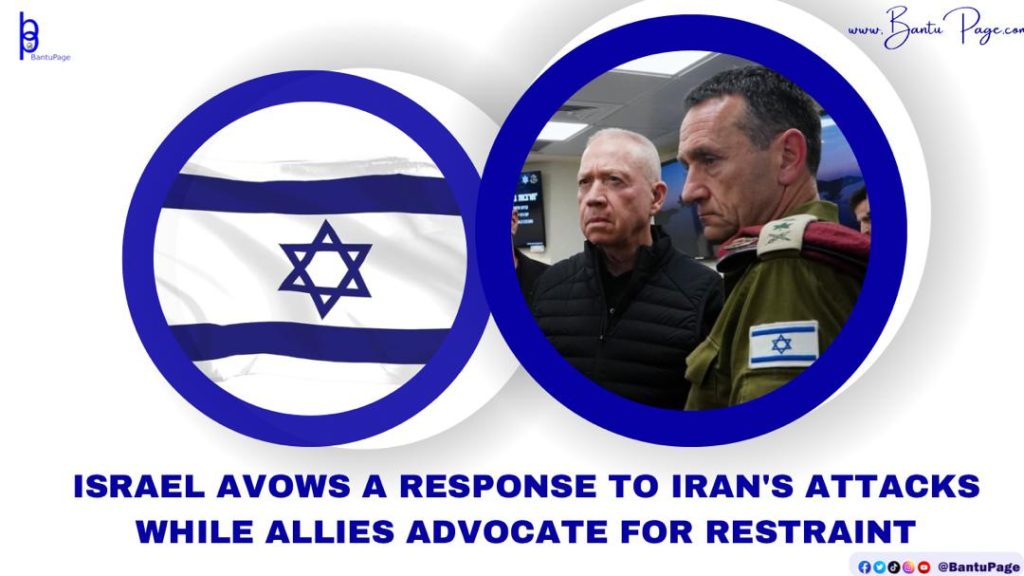
Israel’s military chief, Lieutenant General Herzi Halevi, stated on Monday, addressing troops at the Nevatim air base that was targeted by Iran’s Saturday night barrage, “This launch of so many (Iranian) missiles, cruise missiles, and UAVs into Israeli territory will be met with a response.”
Some have described Iran’s retaliatory missile and drone barrage as the first step in a challenging new strategic approach.
The Middle East region is yet to put a halt to the Israeli-Palestinian war that has been on since October 7, 2023, which has changed the lives of both parties. All efforts by some countries and the international community to quench the fire of the war remain futile. In a bid to quell the tension between Israel and Iran, the Western government has called on the allies of both parties to stop the exchange of arms from further escalation.
Prime Minister Benjamin Netanyahu reportedly convened with his war cabinet late Monday to deliberate on the course of action that follows. Western governments, including those that backed Israel in its defence, have issued warnings against an escalation. In a call with his Chinese counterpart on Tuesday, Foreign Minister Hossein Amir-Abdollahian stated that Iran was “willing to exercise restraint” and had no intention of escalating tensions any further. Iran had previously stated that it would consider the matter “concluded” unless Israel retaliated.
Mohammad Jamshidi, the deputy chief of staff for political affairs to the Iranian president, stated on X that additional attacks against Iranian personnel and assets “will be met with a direct and punishing response” and that the “era of strategic patience is over.”
Iran temporarily closed its nuclear facilities on Monday, the chief of the United Nations’ atomic watchdog said, citing “security considerations” following the country’s retaliatory strike.
The International Atomic Energy Agency’s director general, Rafael Grossi, announced that his inspectors would not return until Tuesday, or whenever “we observe that the situation is entirely under control.”
According to a senior US official, President Joe Biden informed Netanyahu that Washington would not provide military assistance in response to any retaliatory actions taken against Iran.
Additionally, French President Emmanuel Macron and British Foreign Secretary David Cameron advocated for the exercise of restraint. Antony Blinken, the United States secretary of state, stated that the administration did not “seek escalation, but we will continue to support Israel’s defence.” Speaker of the United States House of Representatives Mike Johnson predicted that a vote on a new package of military aid for Israel could occur on Friday. Right-leaning members of Johnson’s Republican Party, who oppose additional military funding for Ukraine that is also a component of the package, have halted its progress in the House.
China, a major purchaser of US-sanctioned oil and a close ally of Iran, has been urged on multiple occasions by the United States to utilise its sway over Tehran in order to defuse tensions in the Middle East. One would question, What countries make up the Western countries? Is the United Nations’ effort limited to lip service?
By Chidimma NWAFOR





